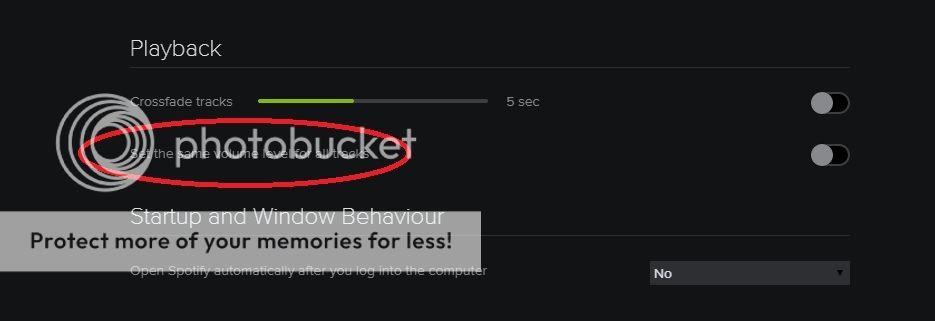MajorFubar said:
Steve your detective work with Spotify is to be applauded, but don't ever lose sight of the fact that Spotify is first and foremost a consumer-grade streaming service with no pretentions of super high fidelity. When its developers ****-about with the settings and codecs behind the scenes, someone like you (or collectively us) couldn't be more distant from their thoughts. Digital streaming services like Spotify only sound as good as they do because with digital audio you really have to try incredibily hard to fcuk it up to the point of it becoming unlistenable. The acceptable quality they achieve is a happy accidental consequence of modern digital file-compression and distribution. They don't have to try very hard to get the SQ acceptably right, and there's no audiophile in the back office QA'ing their streams through range-topping amps and speakers that cost as much as a Ferrari.
Thanks.
🙂
The sound quality of Spotify is bloody good both subjectively and objectively. The way they do things is probably as good as it will ever need to be (try ripping a lossless WAV into 320kbps ogg vorbis then ABX it using Foobar if you dare). The new version of the Spotify player doesn't seem to be compressing the DR and the 320kbps that they use is a sensible and managable file size for streaming with really good sound quality. IMO the only way they could make any real improvment in sound quality would be to offer more of the older and better mastered versions of albums rather than the new and usually worse 'remastered' versions which they tend to go for.
As far as these tests go it's worth bearing in mind that I'm only a keen amateur who enjoys fiddling around to satisfy a curiosity as to how things work. This includes looking at Spotify and trying to work out what processing they use. I just like to fiddle around with stuff and post my thoughts as I do it... a sort of 'thinking out loud on a public forum' to see where it takes me and to see what other people think of it. Hopefully it might even be useful to a few people too who might be wondering the same sort of things.
At the end of the day Spotify is just a casual yet very good quality streaming service. Most people like me who are OCD about sound quality will buy the CD off Amazon and rip it themselves anyway.


